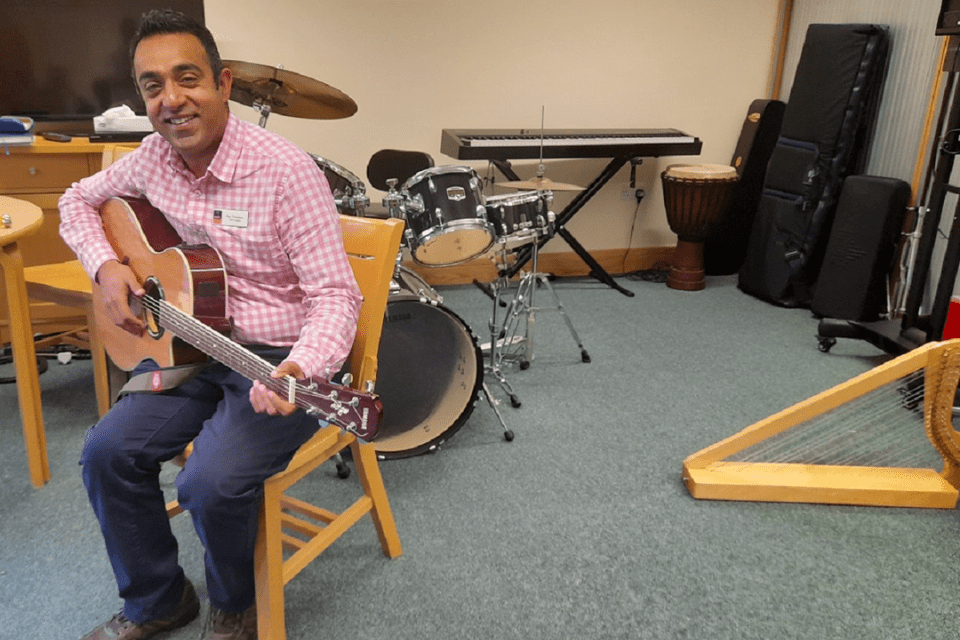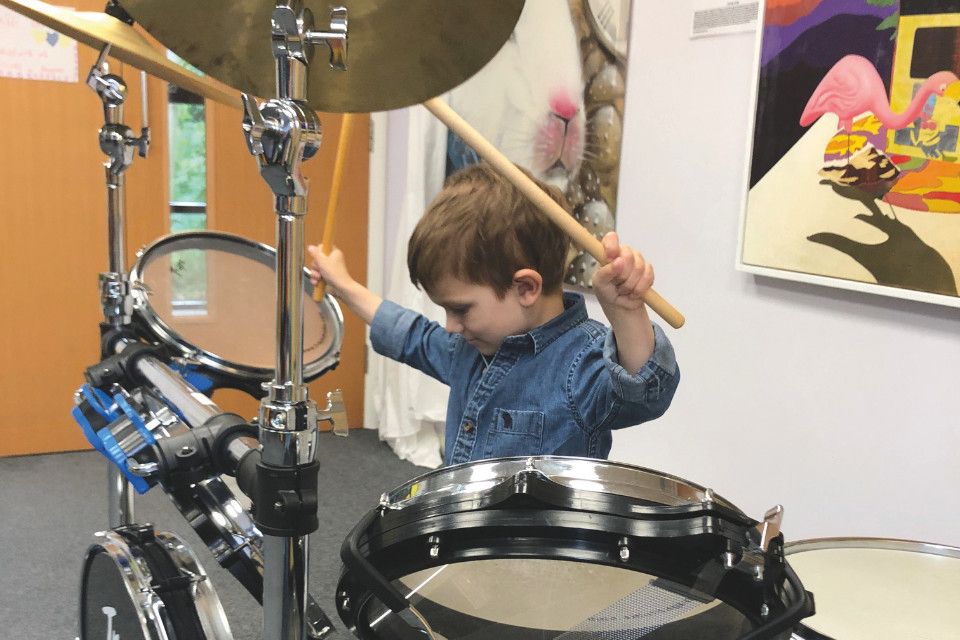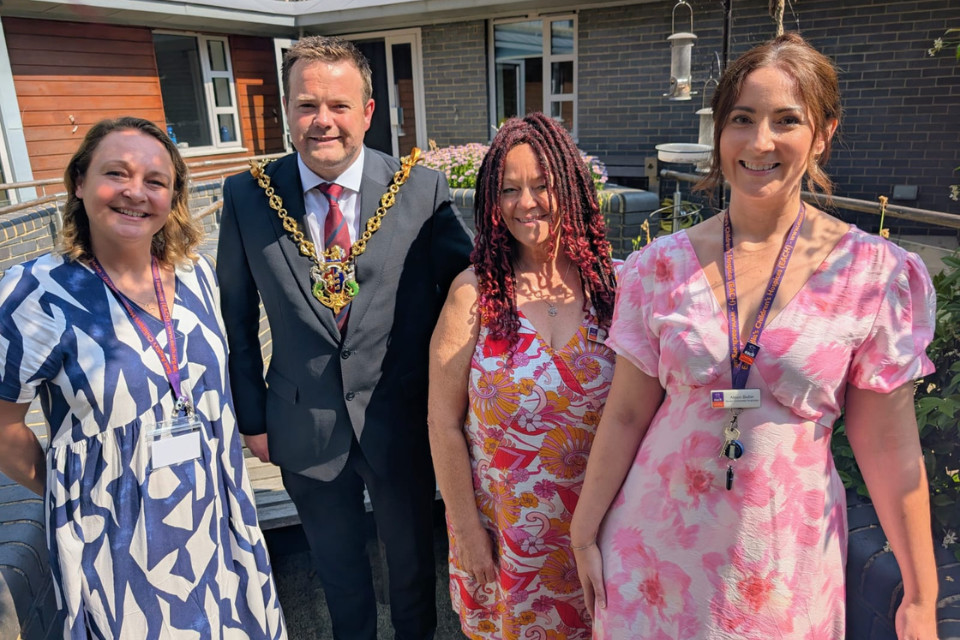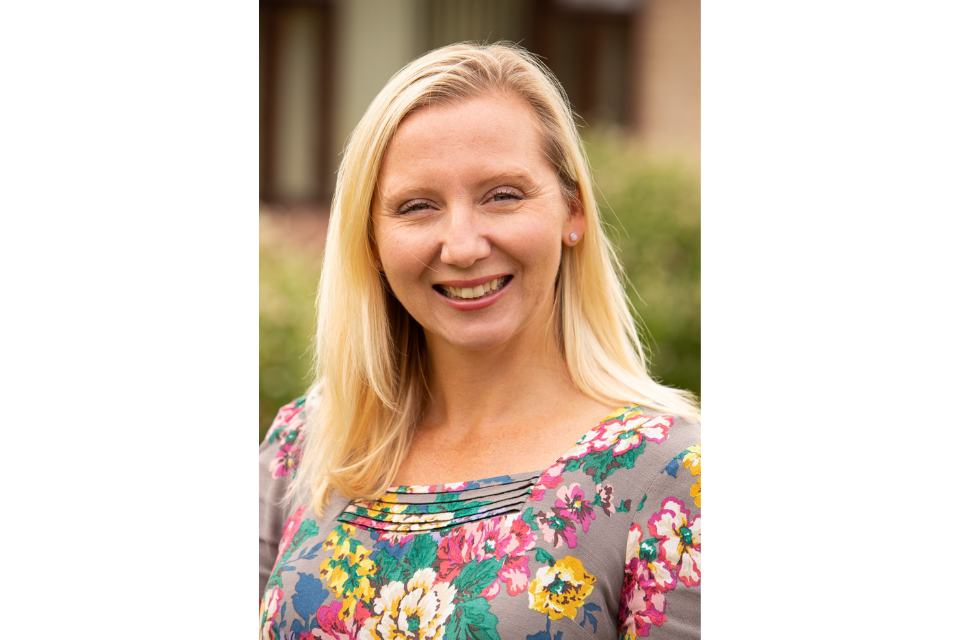Ray Travasso has no doubt in his mind. He has the best job in the world. As East Anglia’s Children’s Hospices’ ebullient music therapist, he gets to combine two of his great passions working with children, young people and families at The Treehouse, in Ipswich.
His role brings together a deep-rooted love of music with the fierce desire to help others and it’s something he’s done with joy and pride for 20 years. Music therapy is based on the understanding all humans have an innate response to music and that remains unchanged by illness, disability or emotional state.
It provides a platform to engage, reach out, interact and support and helps forge connections with children, young people, siblings, parents, grandparents, careers and even whole families.
“Music is an amazing thing to have in a hospice like this,” said Ray, originally from Ilford but now happily settled in Ipswich.
“So many of the children and young people that come here face real challenges. They live in a sensory world but they’re not able to speak or articulate their thoughts. Some of them can’t do many of the things other children their age are able to, so being able to connect via music can be incredibly powerful.
“What we know and understand is that everyone responds to music, regardless of how young or old we are. It doesn’t matter how impaired we are or whether we’re dealing with illness, grief or trauma.
“The brain connects with music in a way no other intervention can get near. We have a physical response to it, like when we’re driving and a certain song comes on the radio. We instinctively start tapping the steering wheel.
“A favourite song might make us want to dance and we use it to get the blood pumping when we’re running or exercising. It changes things within us both naturally and spontaneously and that’s a phenomenon.”
Ray says that physical reaction is just one of the joys of music. Other elements he and his colleagues tap into include emotional and cognitive responses, as well as social and spiritual benefits.
“There’s always an emotional response, in the way we react,” said Ray, 48.
“Sometimes we’re moved to tears. We get a tingle down the spine or something might make us laugh. Whatever genre you choose, music evokes an emotion and we listen to connect with those feelings. We gravitate towards something that reflects our mood.
“There’s also a cognitive response because the brain is triggered when we listen to music. It lights up and the neural pathways within it fire everywhere. The brain’s well and truly activated.
“We can’t take away the conditions our children and young people are experiencing but music expands potential and reduces the limitations they’re constrained by.
“It can help with memory, for instance, and music can be very positive in terms of neural development. There’s also a social element, which is why we go to concerts and gigs and why some of us play in bands and orchestras. Even a soloist is performing to people.
“We listen and sing together when we go to church and football matches. At parties we sing Happy Birthday together. That social aspect is just as important in a hospice.
“The final response is a spiritual one, which is why its integral to every religion in the world. Whether it’s church bells, meditation, praying or signing a hymn. We turn to music to find inner peace and, again, that’s very important here.”
In music therapy, children and family members experience music improvised uniquely for and with them. They have the opportunity to interact and connect, expressing themselves in whatever way they can – using their body, voice or instruments.
Most of all, it’s about forming a creative and therapeutic relationship.
“My job is to work with the person or people referred to me and address their needs using a creative response to music,” said Ray, who is married and has a son, 17, and daughter, 16.
“I have to work out what they’re struggling with and finding difficult. Yes, we’ll talk but we’ll quickly get to the instruments and start making music. Then we’ll tap into those different elements of music – physical, emotional, cognitive, social and spiritual – to make a connection.
“We have some fun but that child might have had a bad night’s sleep or be in pain. They might be struggling in a way we don’t understand.
“In that instance, it’s not just about happy clappy music. It may be quite emotional and it might facilitate that child to cry. That might be what they need to do to express themselves.
“If I’m having a bad day, I might rant off at someone or go for a run. These children have bad days, too, and they need to find a way of expressing themselves. That’s where the therapeutic side of my therapy is so important.”
No two days are ever the same at EACH.
Ray’s role is especially varied and he works with individuals, families and bigger groups, running sessions such as Playdays (for under-fives) and Band Practice (for older children and teenagers).
He might work with a child at the end of their life, run powerful bereavement sessions or participate in memory days, helping people reflect on the lives of their loved one.
“There’s no such thing as an average day,” said Ray, whose own eclectic musical tastes range from pop and classical to jazz and gospel (he also has a Stormzy album).
“So many different things might happen. However, I can safely say I’ve got the best job in the world. It’s amazing and creative and it’s a very special feeling being part of the team at EACH.
“That team mentality is incredibly important. I’ll meet with the other professionals and my day will include meetings about referrals. Then we have our sessions and that’s the best bit for me. They’re about finding the best way to connect with the child through music.
“Sometimes we’ll really go for it. The child might just want to bash the drumkit and rock out. On other occasions, the child will need gentle music. Either is absolutely fine and very important.
“There’s a value in all types of music and it’s great fun experimenting, because there are always new things to learn.
“All the time, I’m trying to observe the child. How are they responding to the music? What are their facial expressions? Are they moving? Are they making sounds? Do they look happy or are they getting edgy and upset?
“I’m improvising all the time, making it up in the moment, and that’s one of the skills we, as music therapists, bring to the table. I might put a different instrument in front of a child and their eyes suddenly light up. That’s a real wow moment.
“EACH is such an incredible organisation, doing so much phenomenal work. It’s not just about medical care. It’s about holistic care and we believe that’s the best way to support children, young people and families.
“Music therapy is just one way but one that perfectly showcases those values. It’s a fantastic team and we work well together, bringing different skill sets to the table.
“I’m proud to be part of that team and it’s such an enormous privilege. It’s one I never take for granted and I feel genuinely lucky to do the job I do.”



